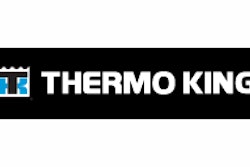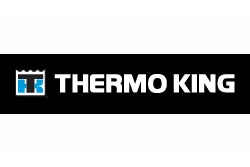Dallas: Dean Foods, the nation’s largest dairy processor and owner of one of the largest refrigerated direct-store delivery distribution networks in the industry, unveiled a delivery vehicle equipped with a new prototype truck refrigeration system developed by Thermo King.
This advanced, cost-efficient and environmentally-sustainable truck refrigeration system significantly reduces the emissions associated with traditional diesel-powered transport refrigeration.
The diesel-free, hybrid electric-powered refrigeration technology will help Dean Foods reduce its carbon footprint while creating operational efficiencies and cost savings. The technology also represents a step towards achieving Dean Foods’ commitment to remove 50,000 metric tons of carbon from its transportation system by 2013, the equivalent of removing 9,500 cars from the road.
“Our highest priority is reducing the cost and improving the efficiency of our operations,” says Harrald Kroeker, president of Dean Foods’ Fresh Dairy Direct business unit. “Innovations that eliminate the use of diesel fuel, which is a major expenditure and our second largest source of emissions, drive cost savings to our business that benefit the environment.”
The electric-powered refrigeration units replace traditional mechanical models that rely on a separate diesel-powered engine to facilitate cooling while en route, and require oil, filters and anti-freeze as part of their routine maintenance. The new unit reduces emissions and waste by operating on electricity both while parked and while driving, eliminating the need for an independent engine in the refrigeration unit. Additionally, the new unit emits significantly less noise than conventional mechanical refrigeration units, an important consideration for local communities.
The prototype truck refrigeration system has already been put into service in Dean Foods’ Dallas-area fleet. It has made daily deliveries from the company’s Oak Farms Dairy facility since March 2010. The company aims to achieve at least a 50 percent savings in diesel fuel usage as compared to traditional refrigerated vehicles by adopting the new technology over the longer-term.
Eliminating the diesel used in the refrigeration units of traditional vehicles would remove 21,000 pounds of carbon per vehicle per year and significantly reduce costs. Because Dean Foods typically replaces about 200 delivery trucks each year, innovation such as this is an important step toward substantially decreasing fuel usage and related carbon emissions.
“This emission-reducing technology delivers superior functionality by offering fresh and frozen precise temperature management with complete flexibility for the management of fleets,” says Dave Regnery, president of the Hussmann, Thermo King and Trane businesses in North America. “Thermo King is proud to collaborate with Dean Foods in leading innovation that creates an efficient and sustainable option for refrigerated transportation.”















